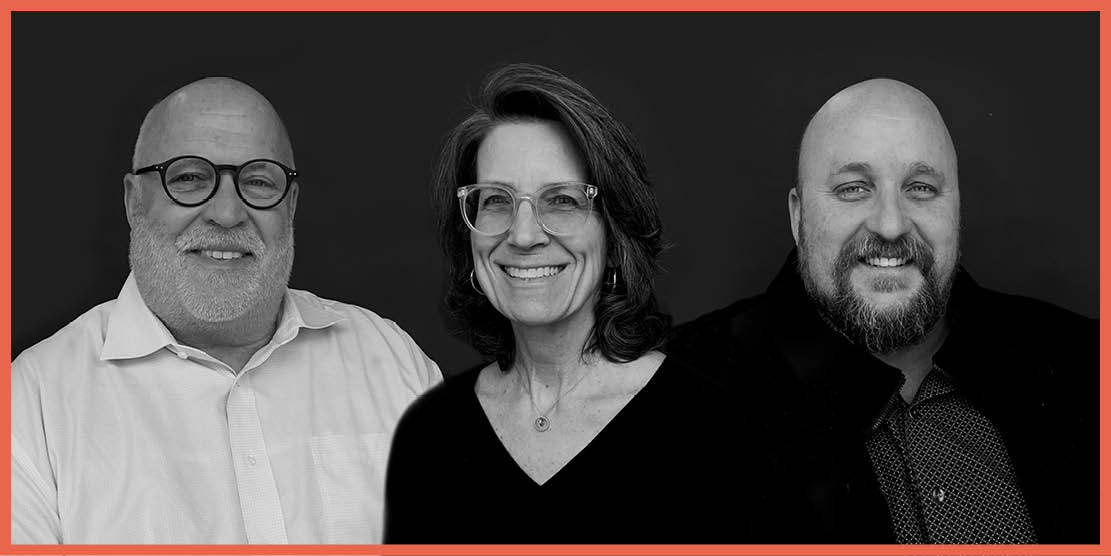March 14-16, 2024 | Vancouver, BC
112th Annual Meeting
DISRUPTERS ON THE EDGE
SCHEDULE: THURSDAY, MARCH 14, 2024
Below is the schedule for Thursday, March 14, 2024, featuring session descriptions. You can read the research abstracts by clicking HERE. The conference schedule is subject to change.
Obtain Continuing Education Credits (CES) / Learning Units (LU), including Health, Safety and Welfare (HSW) when applicable. Registered conference attendees will be able to submit session attended for Continuing Education Credits (CES).
Exhibitor Hall Hours:
Thursday, March 14 at 5:30pm-8:00pm
Conference Registration Hours:
Thursday, March 14 at 9am-7pm
9:00am-1:00pm
Ticketed Event
5 LU Credit
Guests in the City: Beach Clean-up at Í7iy̓el̓shn (Sunset Beach) Tour
Walking Tour
Tour Leaders: Rana Abughannam, University of British Columbia
Émélie Desrochers-Turgeon, Dalhousie University
Jenan Ghazal, Carleton University
How can conferences consider reciprocity towards the human and non-human communities who host them? How can we be better guests? What insights, actions, such as a beach clean-up, can offer for our architectural education and practice in terms of stewardship, environmental footprint and place making?
Disrupting the usual conference program, this action session engages momentarily in practices of reciprocity and care toward the land and water of K’emk’emeláy̓ / Vancouver. In collaboration with Sea Smart, knowledge keepers and community members, we invite ACSA attendees (and their friends and family) to join us in tending to the shoreline of Í7iy̓el̓shn (Sunset Beach) on Thursday, March 14, from 9 am to 1 pm. Equipment and light snacks will be provided. Spots are limited.
2:00pm-3:30pm
Research Sessions
1.5 LU Credit
Pedagogy: Pedagogical Dimensions
Moderator: Camille Sherrod, Kean University
Unorthodox Pedagogy: The American School Approach
Stephanie Pilat, University of Oklahoma
From Home Front to Architectural Frontier: How the Cambridge School Redefined Architectural Pedagogy
Sonya Falkovskaia, Harvard University
Pedagogical Reverberations: A Taxonomy of Design Studio Responses
Claudia Hernandez-Feiks & Ting Chin, New York City College of Technology
Nontraditional Grading for Equitable Learning: Alternative Assessment in Architecture
Kristin Barry, Ball State University
Building Science and Technology: Building Science & Sustainability
Moderator: Robert Williams, University of Massachusetts Amherst
Future Use Architecture: Connecting Housing Policy, Housing Typology, and Resource Use for Housing in Canada
Daniel Rondinel-Oviedo, Naomi Keena & Martha Pomasonco-Alvis, McGill University
Pervious Concrete Grotto: A Modular Evaporative Micro Climate
Alex Timmer, University of Wisconsin-Milwaukee
Seven Generations for Wood Waste
Kaia Nielsen-Roine & AnnaLisa Meyboom, University of British Columbia
Engineered Living Materials (ELMs) for the Built Environment
Gundula Proksch University of Washington
Design: New Housing Paradigms
Moderator: Pari Riahi, University of Massachusetts Amherst
Contested Circumpolar: Domestic Territories
Mason White & Kearon Roy Taylor, University of Toronto
Matthew Jull & Leena Cho, University of Virginia
Lola Sheppard, University of Waterloo
Ben DiNapoli, Arctic Design Group & University of Virginia
Faculty Design Award
Not for Sale! – Housing Education at the Intersection of Activism, Architecture, and Advocacy
Matthew Soules, University of British Columbia
Adrian Blackwell, University of Waterloo
Housing Design Education Award
Denver Low-Rise: New Domestic Forms of Collective Living
José Ibarra & Leyuan Li, University of Colorado Denver
Housing Design Education Award
New Faculty Teaching
Gillian Shaffer Lutsko, University of Southern California
New Faculty Teaching Award
Society + Community: Community Infrastructures
Moderator: Christianna Bennett, Rensselaer Polytechnic Institute
Terms Of Transition In The Ohio River Valley
Jeffrey Kruth, Miami University
Hard Labor, Soft Space: An Atlas of Radical Ruralism
Stephanie Lee, Bard College
The Enduring Commons in the Evanescent Age: The impact of E-commerce on the rural commons in Zhejiang, China
Sufeng Xiao, Harvard University
The Beans- Microenvironment for the Housing Insecured Students
Marta Nowak, The Ohio State University
Ecology: Ecology of Design
Moderator: Nea Maloo, Howard University
Earthen Ecologies: Creating Micro-Habitats for a Local Elementary School’s Learning Environment
Peter Raab, Erin Hunt & Terah Maher, Texas Tech University
Geothermal Cultures in Para-Climate Change Iceland
Debbie Chen, Rhode Island School of Design
Sage Hill: A Post-Natural Geoform for Multi-Species Restoration
Jonathan Scelsa, Pratt Institute
Jennifer Birkeland, Cornell University
MESO-COSM
Brittany Utting, Rice University
Daniel Jacobs, University of Houston
Faculty Design Award
DISRUPTED HOUSING: COMMUNITY DESIGN IN CRISIS CONTEXTS
Organizers:
Dahlia Nduom & Bradford C. Grant, Howard University
Presenters:
Irantzu Serra Lasa, Disaster Resilience Consultant
Joseph Ashmore, International Organization for Migration
This session focuses on housing and community design through the lens of U.S. climate change related disruption and displacement due to sudden and slow (or repeated) onset disasters. The session investigates intersectional pedagogical approaches to educate the next generation of environmental designers and architects through the interrelated lens of domestic land tenure, property rights, sociology, economics, health, and architecture. The session situates the issues in the context of the climate crisis, resilient design, and climate change gentrification. It presents pedagogical approaches and research generated in design studios and seminars at Howard University and other institutions.
DESIGN FUTURES FORUM: DISRUPTING DESIGN EDUCATION
Presenters:
Elgin Cleckley, University of Virginia
Ceara O’Leary, University of Detroit Mercy
Ezra Kong, Design Futures Forum & Reflex Design Collective
Entering its 12th year, Design Futures Student Leadership Forum is an annual convening and national network that both disrupts and complements traditional design education, centering principles of racial justice and social equity and supporting students to lead in the field of ethical community-engaged design. Annually, students and faculty from up to 15 design schools convene for workshops, deep dive sessions and local knowledge sharing toward these ends. This session will share the tenets and foundations of Design Futures and also share the forum through the lens of the 2023 convening at the University of Oregon.
Multiple paths to licensure: What is NCARB thinking?
Presenters:
Harry M. Falconer, Jr., NCARB
The National Council of Architectural Registration Boards is considering revolutionary changes to open more means for would-be architects to achieve licensure. Why? How? What does this mean for accreditation and architecture programs? What new opportunities might exist for educational institutions? Separate fact from speculation in this session presented by Harry Falconer. NCARB’s Senior Architect and Vice President of Policy+International Relations.
Considering the Urgency of Urban Design in Architectural Education
Organizers:
Patty Heyda, Washington University in St. Louis
Maria Arquero de Alarcón, University of Michigan
Mona El Khafif ,University of Virginia
Ellen Dunham-Jones, Georgia Institute of Technology
Dean Almy, University of Texas at Austin
Julio Salcedo-Fernandez , City College of New York
Marcella Del Signore, New York Institute of Technology
Nico Larco, University of Oregon
Open to all ACSA conference participants. The meeting will begin with a short [20 minutes] introduction of the UDAC from members of the steering committee. This will be followed by a general discussion session around pressing issues related to urban design agendas for education / pedagogy / and practice. [40 minutes]. The session will be moderated by members of the UDAC steering committee. The session will then break up into smaller work groups around circular tables to further discuss individual topics {30 minutes].
4:00pm-5:30pm
Research Sessions
1.5 LU Credit
Pedagogy: Early Stage Design Pedagogy
Moderator: Leen Katrib, University of Kentucky
Instruments of Invention and Intent: Evolving Pedagogy for Early Architectural Drawing
Adam Dayem, Rensselaer Polytechnic Institute
Decelerated Traces: Crafting a Drawing Practice for an Early Design Curriculum
Pari Riahi, University of Massachusetts Amherst
Design in Dialogue: Precedent in the Introductory Design Studio
Aaron White, Mississippi State University
Exercising the Everyday: A Pedagogical Approach
Alyssa Kuhns, University of Arkansas
Building Science and Technology: Building Science & Design
Moderator: Timothy Adekunle, University of Utah
Embodied and Operational Carbon Analysis: A Grasshopper-Based Method for Visually Comparing Impacts of Material Choices
Mike Christenson, Malini Srivastava & Robert Gay, University of Minnesota
Action Plan: A Survey of Patenting and Commercializing Building Science Research within Design Programs
Liane Hancock, University of Louisiana – Lafayette
The Best Laid Planes
Mary Hardin, University of Arizona
Housing Affordability Under the Microscope: Measuring Heat Transfer to Quantify Cost Versus Performance
David Hinson, Mackenzie Stagg & Elizabeth Garcia, Auburn University
Society + Community: Co-Creation and Mutuality
Moderator: Antje Steinmuller, California College of the Arts
Planting Imagination: Community Co-Design for Toronto’s Chinatown West
Linda Zhang, University of Waterloo
Josephine Pui-Hing Wong & Mandana Vahabi, Toronto Metropolitan University
Kenneth Fung, University of Toronto
Alan Li, Regent Park Community Health Centre
Tyler Fox, Springboard Youth Academy
Spatializing Reparations: Mapping Reparative Futures
Danika Cooper, University of California, Berkeley
JAE Essay Award
Micro-Intervention and Co-Creation at a Family Shelter
Sameena Sitabkhan , Karen YunJin Seong, Lowai Ghaly, Mazen Ghaly, Mohamed Meawad, Andrew Hart, Kim Ebueng Estacio, Kendryx Soriano, Edgar Castillo, Peter Peritos & Shadi Vakilian, Academy of Art University
Mutual Knowledge in Comparative Case Study of Indigenous Craft Practices in Las Loceras de Pilén, and Bát Tràng
Hojung Kim & German Valenzuela, University of Tennessee-Knoxville
Ecology: Environmental Ecology
Moderator: Erin Moore, University of Oregon
Trans-scalar Architectures for Earth: Rain Check
José Ibarra, University of Colorado Denver
Severing Ties: A Pedagogy for Envisioning New Typologies of Environmentally-Attuned Architecture
Christianna Bennett, Rensselaer Polytechnic Institute
Teaching the Circle: New Pedagogies for Exploring Materials Reuse in Design
Emily Potts, California State University, Sacramento
Beyond Retreat, Occupying the Intertidal Edge
Megan L Spoor, Tulane University
AIAS CRIT Scholar
COMMUNITY-ENGAGED STUDIOS: LET’S SHARE NOTES!
Presenters:
Ceara O’Leary, University of Detroit Mercy
Alexis Gregory, Mississippi State University
Joshua Budiongan, University of Detroit Mercy & Detroit Collaborative Design Center
Julia Grinkrug, California College of the Arts
Increasingly, architecture programs and professors are engaging with community in their studio curriculum, pushing the bounds of traditional academic norms and inviting a more collaborative teaching model. These studios enrich student experience and design development and have the potential to benefit community partners. They also come with a responsibility to partners and students to teach to responsible partnerships, effective community engagement, and soft skills such as listening in tandem with design skills. These studios are often shared at ACSA across various sessions. This special session aims for a collaborative dialog amongst studio instructors to share best practices and lessons in working with community partners in the design studio context responsibly and usefully.
Pathways: Towards Developing a K-12 Architectural Education Guide for ACSA
Presenters:
Edson G. Cabalfin, Tulane University
Kendall Nicholson, ACSA
Catherine Hamel, University of Calgary
Noah Resnick, University of Detroit Mercy
Michael Zaretsky, University of Oregon
What is the K-12 landscape in architectural education and what opportunities exist for greater impact? How might ACSA engage the ecosystem of K-12 architectural education programs? These questions form part of the 2023-2024 ACSA Leadership Committee’s investigation on the relationship between K-12 education and architectural education at the college and university levels. This session aims to discuss and collect feedback on a best practice guide intended to help ACSA members engage K-12 architectural education programs across the continent.
6:00pm-7:00pm
Plenary
1 LU Credit
OPENING KEYNOTE:
2024 Tau Sigma Delta Gold Medal

Brooks + Scarpa
Brooks + Scarpa is a collective of architects, designers and creative thinkers dedicated to enhancing the human experience. Angela Brooks, FAIA, Lawrence Scarpa, FAIA, and Jeffrey Huber, FAIA, ASLA are principals. Honored with the Smithsonian Cooper- Hewitt National Design Award, the firm is a multi-disciplinary practice that includes architecture, landscape architecture, planning, environmental design, materials research, graphic, furniture and interior design services that produces innovative, sustainable iconic buildings and urban environments.
Read More
Awarded the State of California and National American Institute of Architecture Firm Award for more than two decades of consistently exemplary work seamlessly blending architecture, art and craft, Brooks + Scarpa has also garnered international acclaim for the creative use of materials in unique and unexpected ways. The firm has also been recognized for pioneering more holistic approaches to delivering award winning environmentally responsive designs.
While the Brooks + Scarpa team practices architecture with an extremely rigorous and exacting methodology, incorporating cross-discipline research and digital technologies, we remain open-minded, so that our work can adapt throughout the dynamic process of making places for people. Each project is designed to address our client’s needs, budget and specific site conditions incorporating important global issues such as sustainability and digital fabrication.
7:00pm-8:00pm
OPENING RECEPTION
Continuing Education Credits
Obtain Continuing Education Credits (CES) / Learning Units (LU), including Health, Safety and Welfare (HSW) where applicable. Registered conference attendees will be able to submit sessions attended for Continuing Education Credits (CES). Register for the conference to gain access to all the AIA/CES credit sessions.
Conference Partners
Michelle Sturges
Conferences Manager
202-785-2324
msturges@acsa-arch.org
Eric W. Ellis
Sr. Director of Operations and Programs
202-785-2324
eellis@acsa-arch.org

 Study Architecture
Study Architecture  ProPEL
ProPEL 



